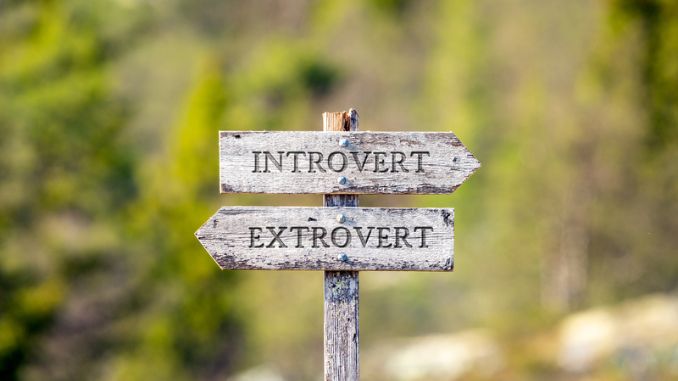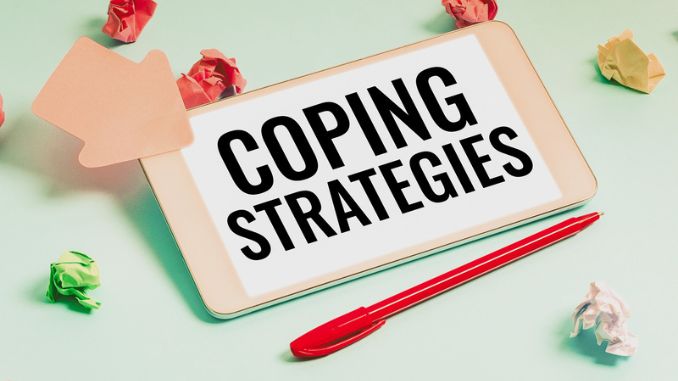Happiness is individual and can vary from person to person, taking into account that introvert disadvantages may encounter when seeking fulfillment due to their distinct preferences and tendencies. For extroverts, their cloud nine is their presence in social events, where they tend to find a burst of energy and fun interacting with people. While for introverts, happiness and fulfillment reside in quiet moments and introspection, these are introvert disadvantages. Being social is a challenge for them; that’s why it’s emotionally draining. Introverts tend to recharge by connecting solely to the depths of their inner world. Yet, having these characteristics of introversion tends to yield mental health-related challenges. What aspects of introversion interfere with the acquisition of optimum mental health?
What is an introverted personality?
Introvert personality is a behavioral pattern characterized by a preference for solitude, introspection, and inner reflection. In social settings, introverted people can be distinguished by their shyness, limited interaction with the crowd, being reserved and observant, and their tendency to actively listen more than speak. Introverts typically engage in reflective thinking, pondering their thoughts and emotions deeply. They enjoy activities that allow them to focus inward, such as reading, writing, or engaging in creative pursuits. Introversion can be better understood when discussed in contrast with extraversion.
Understanding Differences Between Introverts and Extroverts
1. Social Events
When observed, introverts can be spotted at social gatherings. Introverts are often those who sit quietly as they feel awkward engaging in active casual conversations. Many introverts tend to look for and stay in less crowded areas with minimal attention drawn to them. Extroverts, on the other hand, prefer areas where they can speak and mingle with people. They don’t mind drawing attention to themselves during social interactions.
2. Interest
Introverts and extroverts differ in their sources of energy. Introverts find it refreshing to do activities where they can have their own space to reflect and introspect. These activities include hiking, reading, watching TV, and exploring their creative side. While extroverts, they recharge from activities where they can bond with other people, usually in social settings. Extroverts like to participate in parties attend concerts, go to parks, and wander in public places.
3. Social Relationships
Introverts often value deep conversations and meaningful connections with a select few individuals. They may have a smaller circle of close friends, but they tend to build stronger relationships. Conversely, extroverts may have a broader social network with a wide range of acquaintances and great friends, valuing the number of relationships.
4. Handling Social Situations
In social settings, introverts may observe and take time to get comfortable, whereas extroverts tend to be more outgoing and engage readily in interactions.
5. Communication Style
Introverts are great listeners and may engage in more thoughtful, reflective, and deeper conversations. Extroverts are generally more talkative and expressive, engaging in verbal processing to share their inner thoughts, ideas, and emotions.
Mental Health Challenges: Disadvantages of Being Introverted
1. Social Isolation
An introverted person tends to dwell away from social gatherings. Social isolation can present specific challenges for introverts, given their natural tendency to seek solitude and enjoy spending time alone. Being alone all the time makes an introvert withdrawn from social groups.
In most theories, the social environment is important in personal development. Thus, being socially isolated blocks the social environment’s contributing factor to moral and personal development. This may result in fixation, which means a person has unresolved conflicts and unmet needs. Consequently, this causes emotional and psychological development to become arrested or stuck at a particular stage, preventing this person from successfully progressing to the next stage of development.
2. Social Anxiety
One of the introvert disadvantages that may find it challenging is to engage with others due to social anxiety. People with social anxiety fear being in social situations, which can be distressing in settings that involve interacting with people, such as school, the workplace, public places, and even the day-to-day demands of living. Their intense fear can trigger physical symptoms such as sweating, trembling, rapid heartbeat, or gastrointestinal distress. This challenge of introversion can be detrimental to one’s daily activities.
3. Depression
Introverted people are more prone to developing depression and it leads to introvert disadvantages. Due to their regular practice of being alone, introverts prefer to take matters into their own hands instead of seeking assistance. With their lack of social connections, introverts tend to gravitate more toward enduring feelings of sadness, hopelessness, stress, burnout, and isolation in moments of downfall.
Prolonged negative feelings like these tend to aggravate and end up as depression. Individuals with depression typically experience mood disturbance, irritability, anger, lack of enthusiasm, emotional detachment, and, worse cases, suicidal tendencies. Interacting with individuals experiencing depression can present challenges in building rapport or maintaining harmonious relationships.
4. Interpersonal Difficulties
An introverted personality leads to difficulty building interpersonal relationships. They find it challenging to connect with people, particularly on an emotional level, instantly. Introverts get uncomfortable with small talk or even initiate a conversation. They prefer to entertain deeper and more meaningful conversations. This reluctance can hinder the initial stages of building relationships and often generates stereotypes of introverts as people who are aloof and set rigid boundaries. Thus, resulting in smaller and fewer social circles.
5. Impact on Physical Health
Prolonged chronic stress can induce physical-related health issues such as sleep disorders and low immunity. One introvert disadvantages are social exhaustion and anxiety, which arises when prolonged or frequent social interactions deplete their energy and worsen feelings of anxiety over time. This can leave them feeling drained and physically weak at the end of the day.. Their low sense of self-sufficiency and fear of getting judged may result from other disorders like Body Dysmorphic Disorder (BDD), eating disorders, and other related health issues.
6. Impact on Lifestyle
Introverted traits significantly impact an individual’s ability to cultivate a healthy lifestyle. The way they connect to the social world and their routines make them feel comfortable, but sometimes they oppose the demands of day-to-day living like public speaking, pitching ideas, and spending time with loved ones and friends.
The constant fear of judgment and difficulty advocating for oneself can restrict one’s ability to explore and experience new things. This can be a disadvantage in their studies, professional lives, and social roles. Furthermore, introverts may feel misunderstood by others, who might perceive their preference for solitude as aloofness or unfriendliness, leading to increased social anxiety that leads to introvert disadvantages.
How to Counterpart Introvert Disadvantages
1. Self-awareness
To counterpart introvert disadvantages you need to accept the tendencies of introversion across situations. It is helpful to consciously identify one’s own feelings and manifestations of introversion in potentially triggering situations. This aids in preventive measures against social anxiety attacks.
2. Set Social Goals
It’s good to recognize the need for alone time for introverted people; however, it’s also necessary to challenge oneself to engage in social interactions and actively participate in social gatherings. Practicing interpersonal communication and fostering the ability to connect with people is essential.
3. Manage Social Anxiety
Identify situations that may trigger social anxiety. Seek the support of mental health professionals who can provide coping strategies and immediate anxiety management during attacks.
4. Balance Alone Time and Socializing
Find a healthy balance between solitude and social interaction. Allocate time for self-care and reflection while participating in social activities that align with your interests.
5. Seek Like-Minded Communities
Find groups with the same interests and hobbies. Engaging in a group project with like-minded individuals can create a more comfortable and supportive social environment. Joining clubs, volunteering, or participating in group activities can offer opportunities for meaningful interactions with others who share common interests.
6. Celebrate Your Strengths
Some strengths come with being an introvert. Make sure to maximize the ability to self-reflect, introspect, observe keenly, focus deeply, and creatively deal with the demands of life and use them as an advantage.
7. Engage in Mindfulness and Relaxation Techniques
Practice mindfulness, meditation, or relaxation exercises to manage stress and cultivate a sense of calm during challenging social situations.
8. Set Boundaries
Don’t be afraid to set boundaries around social engagements and alone time. Communicate your needs to friends and family to ensure sufficient time for self-renewal. Without appropriate boundaries, introverts may experience burnout from excessive social demands. Setting limits on social activities allows them to manage their energy and prevent exhaustion.
9. Express Yourself Creatively
Use creative outlets, such as writing, drawing, or music, to express your thoughts and emotions, especially when verbal communication feels challenging. These creative outlets can pave the way to gradually starting a social connection that helps improve interpersonal skills.
10. Use Technology to Connect
Embrace technology as a tool for maintaining connections with others. People should be connected with someone who actively listens as one opens up. Hence, video calls, texting, and social media allow introverts to connect in less draining ways and prevent introvert disadvantages.
“Empowered Introvert: Techniques to Conquer Social Anxiety in Social Settings”
A. Seek Professional Help
Seeking support from mental health professionals, such as therapists or counselors, can be crucial in helping individuals with social anxiety learn coping strategies. Negate the stigma of going to mental health centers and receiving therapy.
Mental health is vital to our well-being, yet it is somehow the most complicated component to understand. Mental health professionals are trained experts in this field, equipped with various techniques to aid mental health concerns.
Here are some research-proven therapies for treating social anxiety:
1. Cognitive-Behavioral Therapy (CBT)
Cognitive-Behavioral Therapy is widely used and commonly practiced by mental health professionals to manage social anxiety. This therapy involves developing healthy thinking against the identified negative thoughts, fears, and worries in social settings.
2. Mindfulness-Based Cognitive Therapy (MBCT)
This mindfulness technique administered by mental health professionals helps people with social anxiety recognize they are separate from negative thoughts and moods, fostering a stronger sense of self. This technique aims to assist people with anxiety in learning to interject positive thinking into negative thoughts.
3. Group Therapy
Participating in group therapy is beneficial for managing social anxiety as well as introverted traits. Group therapy with others who experience social anxiety can provide a supportive and empathetic environment for learning and practicing social skills.
4. Acceptance and Commitment Therapy (ACT)
ACT teaches people to accept their anxious thoughts and feelings while taking actions based on their values. It aims to break the cycle of avoiding situations that make people anxious so that anxiety has less of an effect on daily life and people can live more happy lives.
5. Exposure Therapy
Exposure therapy involves gradually facing feared social situations in a controlled and supportive environment. Through repeated exposure, individuals can learn that their fears and perceived social customs are often exaggerated and that they can cope with anxiety more effectively.
6. Medication
Medication is typically used together with therapy. In some cases, doctors may prescribe medication, such as selective serotonin reuptake inhibitors (SSRIs) or benzodiazepines, to help manage symptoms of social anxiety. Medications for anxiety are strictly monitored to avoid inducing further health concerns.
B. Self-Help Strategies
Psychological therapies can be expensive and time-consuming. However, introverts can still choose to manage social anxiety to create a lifestyle that balances their desire for solitude with meaningful social connections and enriching experiences. Depending on the severity of social anxiety, there can be self-administered strategies to cope with the burden of the anxiety.
1. Social Skills Training
Social skills training teaches individuals practical social skills such as assertiveness, active listening, and initiating conversations. Learning these skills can boost self-confidence and develop the extroverted counterparts of introverted traits, thus making social interactions more manageable. There are online videos demonstrating ways and exercises to improve social skills.
2. Avoidance Reduction
Nurturing fear and constantly avoiding social situations can aggravate social anxiety. Set up a systematic way to reduce avoidance. This can be done by attending small group gatherings and levitating to bigger group gatherings.
3. Lifestyle Modification
Sticking to a lifestyle that fits and supports introverted traits but doesn’t deal with social anxiety problems can worsen things in the long run. Changing a person’s lifestyle and getting them out of their comfort zone can help these individuals reverse introverted behaviors and finally get rid of their anxiety.
4. Regular Exercise
Exercise is proven to reduce anxiety and improve mood. It reduces cortisol, known as the stress hormone, and releases hormones called endorphins, which naturally lift the mood. Working out can improve self-esteem, resulting in increased confidence in social interactions.
5. Supportive Network
Building supportive relationships with understanding friends, family members, or support groups can offer encouragement and reduce feelings of isolation. These social networks must be aware. Having a committed support system is also a great factor in stimulating a positive outlook on humanity.
6. Track Progress
Journalizing is another way to address fear in social settings. Keep track of whether a certain event triggers anxiety or not. This is useful to stay aware of what areas in social settings should be given intervention.
7. Social Recreational Activities
Recreational activities with small groups like team sports, arts and crafts workshops, picnics, festivals, group games, and other social activities allow introverts to engage in social interactions at their own pace and comfort level. They can choose activities that involve smaller groups or one-on-one interactions, enabling them to form meaningful connections without feeling overwhelmed.
Conclusion
Introversion is a valuable aspect of human behavior and diversity as it balances the extraversion of other people. However, in the realm of health, being social is one of the primary factors in attaining optimal mental health. Incessant self-isolation is a potential cause of mental health concerns. Hence, introverted individuals should be attentive and open to topics regarding their susceptibility to stress, anxiety, and depression.
Given how hard it is for them to connect with others, society must realize they need help and respect. Particularly for introverted toddlers who don’t know they are introverted, it’s important to create a supportive environment that acknowledges their natural tendencies while giving them chances for healthy social and emotional development.
Both society and introverts should exert effort in navigating their way to a better social life. By understanding and accepting themselves as introverts, individuals can traverse the challenges it takes to build and maintain relationships with greater confidence and authenticity.
Also, by promoting awareness, acceptance, and understanding of personalities, we can create a more compassionate and empathetic society that values the diversity of human personalities and supports the mental well-being of all individuals, regardless of their introverted or extroverted nature.

Rick Kaselj MS, is a leading kinesiologist and injury specialist as well as co-creator of the best-selling Unlock Your Hip Flexors program. Rick creates exercise programs that help people heal injuries and eliminate pain, so they can go back to living a full, active, healthy life.







